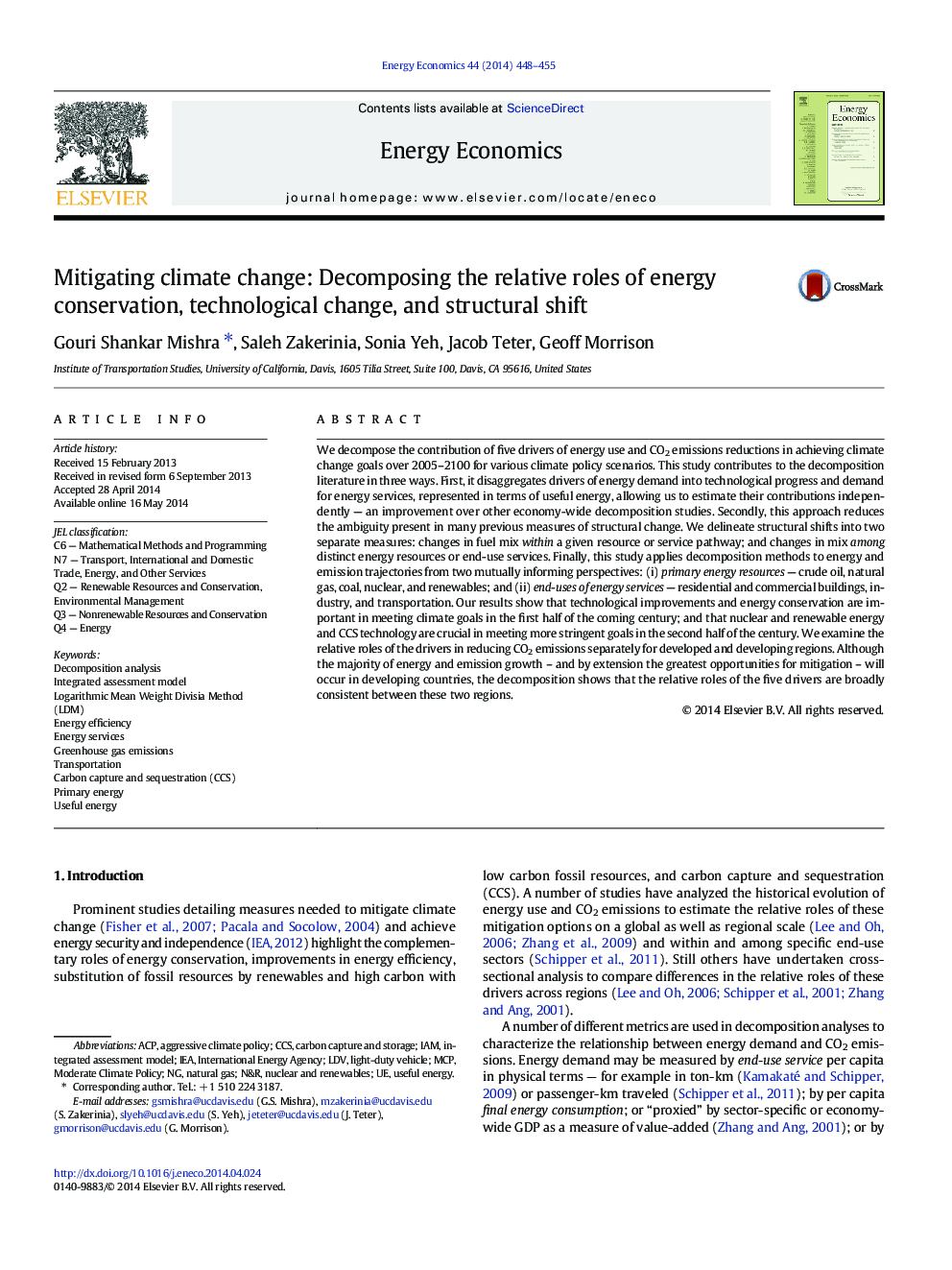| کد مقاله | کد نشریه | سال انتشار | مقاله انگلیسی | نسخه تمام متن |
|---|---|---|---|---|
| 5064640 | 1476719 | 2014 | 8 صفحه PDF | دانلود رایگان |
- We decompose the contribution of five drivers of energy use and CO2 emissions reductions in achieving climate change goals
- We analyze differences across no, moderate, and aggressive climate policy scenarios.
- Technological improvements and energy conservation are key to meeting short-term and moderate climate goals.
- Decarbonization - nuclear, renewables and CCS - is important to meet more aggressive goals.
We decompose the contribution of five drivers of energy use and CO2 emissions reductions in achieving climate change goals over 2005-2100 for various climate policy scenarios. This study contributes to the decomposition literature in three ways. First, it disaggregates drivers of energy demand into technological progress and demand for energy services, represented in terms of useful energy, allowing us to estimate their contributions independently - an improvement over other economy-wide decomposition studies. Secondly, this approach reduces the ambiguity present in many previous measures of structural change. We delineate structural shifts into two separate measures: changes in fuel mix within a given resource or service pathway; and changes in mix among distinct energy resources or end-use services. Finally, this study applies decomposition methods to energy and emission trajectories from two mutually informing perspectives: (i) primary energy resources - crude oil, natural gas, coal, nuclear, and renewables; and (ii) end-uses of energy services - residential and commercial buildings, industry, and transportation. Our results show that technological improvements and energy conservation are important in meeting climate goals in the first half of the coming century; and that nuclear and renewable energy and CCS technology are crucial in meeting more stringent goals in the second half of the century. We examine the relative roles of the drivers in reducing CO2 emissions separately for developed and developing regions. Although the majority of energy and emission growth - and by extension the greatest opportunities for mitigation - will occur in developing countries, the decomposition shows that the relative roles of the five drivers are broadly consistent between these two regions.
Journal: Energy Economics - Volume 44, July 2014, Pages 448-455
